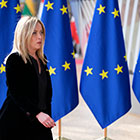
Giorgia Meloni’s Europe
The Italian prime minister has become a central figure in the EU establishment as a mood of decline and threat pushes voters toward reactionary parties.


The Italian prime minister has become a central figure in the EU establishment as a mood of decline and threat pushes voters toward reactionary parties.
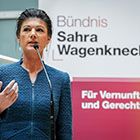
The former Die Linke politician’s new party embraces a model that has found purchase among sections of the left across the Global North: left-wing economics paired with a variety of political positions pulled from the right.

The German political establishment has abandoned the belief that the Holocaust gave it a responsibility to humanity and replaced it with a responsibility to Israel alone.

After more than half a century of dependence on Russian oil and gas, the war in Ukraine has forced German officials to reconsider their reliance on fossil fuels entirely.

U.S. elites are not victims of China and Germany’s export-oriented policies. They are engaged in the complex balancing act needed to maintain global hegemony.
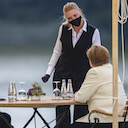
As the 2008 financial crisis made clear, without major change at the European level, social democratic responses to the coronavirus crisis will be out of reach for many countries across the continent.
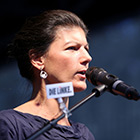
Aufstehen’s leaders insisted that their movement was not defined by its opposition to migrants. But they consistently cast migrants as either pawns in the game of finance capital or as the phony poster children of misguided urban idealists.
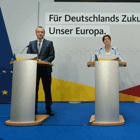
The decline of the historically dominant center-right and center-left parties in Germany and in the recent EU elections sets the stage for greater conflict over how to deal with Europe’s multiple crises.

By providing a single tier of coverage to all, with automatic enrollment, comprehensive benefits, and no cost-sharing, single-payer provides a distinct, egalitarian vision of universality.
Pragmatic thinking and strategic action are not in conflict with the radical spirit of 1968; they are the only way to fulfill it.
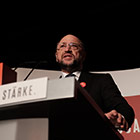
Once an anchor of European social democracy, Germany’s Social Democratic Party has suffered its worst loss since 1932. Can it reclaim the mantle of opposition from the far-right AfD?

The Germany of 2015 will be remembered for allowing close to 1 million asylum seekers into the country. But public opinion in the country has since shifted to the right.
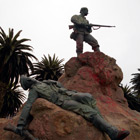
In many Namibian cities, monuments to the twentieth century’s first genocide still stand, and have become a key battleground for activists demanding reparations from Germany for its colonial-era crimes.
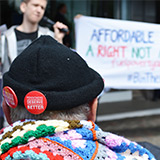
After years of campaigning, London activists recently secured a commitment from the city’s mayor to create a publicly-owned municipal energy company. James Angel of Switched On London explains what energy democracy means in the age of Brexit and Trump.
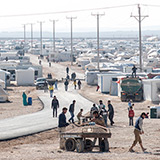
As aid groups struggle to provide even basic services, refugees have turned to overt and contentious modes of resistance to shape their own lives. What do these protests tell us about our existing system of humanitarian response?